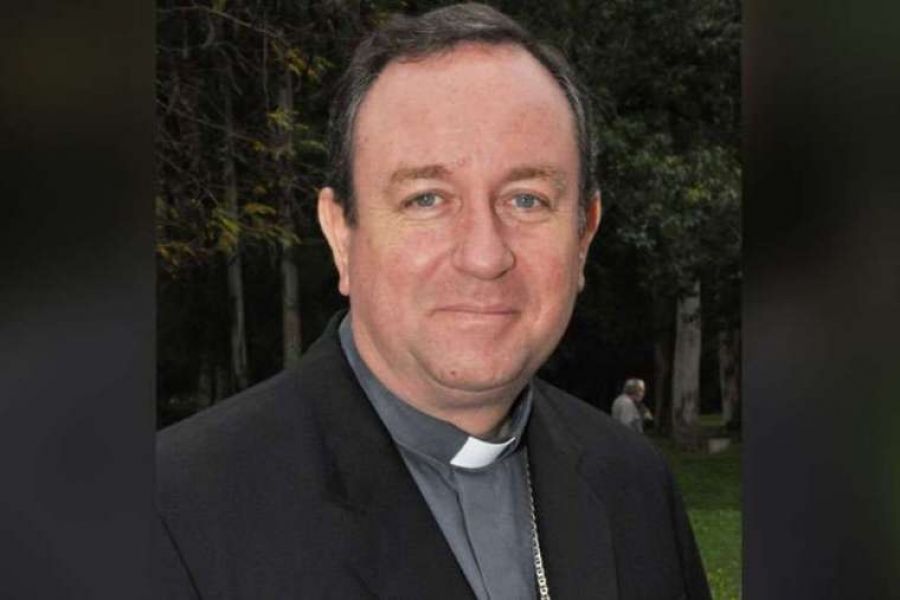Argentine Bishop Zanchetta Ends Vatican Job at APSA
Bishop Zanchetta, the 57-year-old former bishop of Orán, Argentina, has been accused of “aggravated continuous sexual abuse” of two adult-aged seminarians, as well as fraud and mismanagement of funds. He denies the charges.

VATICAN CITY — Bishop Gustavo Zanchetta is no longer working as an assessor at the Vatican’s Administration of the Patrimony of the Holy See (APSA).
According to a source working at APSA, the Argentine bishop finished his service at the Vatican’s central reserve bank around 10 or more days ago.
The source did not know where Bishop Zanchetta is now, but speculated that he may be in Argentina, where he is facing charges of sexual and financial misconduct.
CNA requested comment from the Holy See press office but, at the time of publication, had not received a response.
Bishop Zanchetta, the 57-year-old former bishop of Orán, Argentina, has been accused of “aggravated continuous sexual abuse” of two adult-aged seminarians, as well as fraud and mismanagement of funds. He denies the charges.
The accused bishop was suspended from his role as an assessor at APSA amid a canonical investigation, announced in January 2019.
In June 2020, the Vatican confirmed that Bishop Zanchetta had returned to work at APSA while “remaining available to the Argentine judicial authorities.”
APSA oversees the Vatican’s real estate holdings and other sovereign assets.
Bishop Zanchetta was one of Pope Francis’ first episcopal appointments in Argentina, where he led the Diocese of Orán from July 2013 to 2017.
After being allowed to resign as Bishop of Orán for “health reasons” in 2017, Zanchetta was appointed by Pope Francis to the specially created position of assessor at APSA.
Argentine media have since reported that the bishop was first accused of sexually inappropriate behavior as early as 2015.
According to a report from El Tribuno, one of Zanchetta’s secretaries alerted authorities after accidentally finding sexually explicit images sent and received on Bishop Zanchetta’s cell phone in 2015. The complaint said that some of the images depicted “young people” having sex, in addition to lewd images of Bishop Zanchetta himself.
Pope Francis summoned Bishop Zanchetta to Rome for five days in October 2015. The bishop claimed his phone and computer had been hacked, and that the accusations were motivated by ill-feeling towards the pope. Francis reportedly accepted the bishop’s explanation that his cell phone had been hacked, and took no further action.
The Vatican has repeatedly denied having prior knowledge of sexual abuse allegations against Bishop Zanchetta before his December 2017 appointment to a Vatican office.
After Bishop Zanchetta was charged with assaulting two seminarians in June 2019, Orán’s Economic Crime Unit raided offices in the chancery in November 2019. The raid was carried out to investigate Bishop Zanchetta’s alleged fraud against the state, according to the newspaper El Oranense.
In addition to accusations of mismanaging Church funds donated by the faithful in the diocese, public records show that Bishop Zanchetta received more than 1 million Argentine pesos (around $10,500) from Salta Province to restore a rectory and for lectures at the seminary, which reportedly never occurred.
Spanish priest Fr. Javier Belda Iniesta, who was seen alongside Bishop Zanchetta during his trial in Argentina, confirmed in November 2019 that the bishop was still living in Casa Santa Marta, where he had resided for two years, in Vatican City.
According to La Verdad, a newspaper based in Murcia, Spain, Belda Iniesta was dismissed from his position as dean of the faculty of humanities and religious sciences at the Catholic University of St. Anthony of Murcia (UCAM) in May after it was discovered that he was unable to provide proof of two degrees listed on his curriculum vitae.
According to media reports, Bishop Zanchetta was granted Vatican citizenship in 2018.
- Keywords:
- argentina
- vatican job
- clergy sex abuse
















